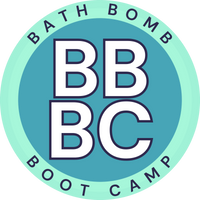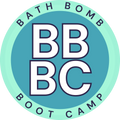What Are The Most Popular Soap Scents?
Choosing the scents you use for your handmade soap is one of the most fun parts of creating soap. The sheer variety of essential oils you can mix and match to make different olfactory and therapeutic experiences is almost mind-boggling. When putting together your own favorite collection of scents and blends, we encourage lots of experimentation, but if you want to see what some of the most popular scents already on the market are, you’re in luck! Here are 8 of the most popular scents for handmade soap.
Even the phrase milk and honey conjures images of luxury and relaxation. While not derived from an essential oil, milk and honey scented soap is still one of the most popular scents on the market. This creamy, moisturizing blend is usually made with all natural goat’s milk and raw honey.
- Lavender
- Sweet Orange
- Lemongrass
- Milk & Honey
Even the phrase milk and honey conjures images of luxury and relaxation. While not derived from an essential oil, milk and honey scented soap is still one of the most popular scents on the market. This creamy, moisturizing blend is usually made with all natural goat’s milk and raw honey.
- Rosemary Mint
- Tea Tree
- Sandalwood
- Patchouli
The earthy, warm smell of patchouli has long been used as a perfume on its own. This familiar essential oil can act as an antidepressant and fungicide and also works as an insect repellent.
What Are The Benefits Of Shea Butter?
Many people with sensitive skin who use regular soaps find that they suffer from dryness, cracking or irritation. This is especially noticeable in the dry winter months. To combat this, people slather on lotions but neglect to address one issue that could be causing the problems: their soap.
Shea butter (pronounced shay) is one of the most luxurious and rich moisturizers you can lay hands on, and it produces an incredibly moisturizing and gentle soap when used as one of the butters in handmade soap.
Shea butter has been used for centuries as a remedy for dry skin and to combat the signs of aging. There is evidence of its use as far back as ancient Egypt when Queen Nefertiti used it on a daily basis to enhance her skin’s beauty.
Shea butter is extracted from the nuts of the Shea tree, which is native to the savannah of Western Africa. The Shea tree can grow to be 60 feet tall and does not flower until it reaches 20 years of age. It is considered a sacred tree and can live to be 200 years old.
Shea butter helps to nourish and soften skin. Combined with the naturally produced glycerin present in handmade soap, it produces a soap that is both delicate and lush. Shea butter does not lose many of its beneficial components when being made into soap, since Shea butter has unsaponifiable compounds that leave the oil close to its natural state as the soap moves through its chemical process.
Shea butter soap also contains many beneficial vitamins, such as Vitamin C, Vitamin A and Vitamin E. These helpful vitamins act as antioxidants, help produce collagen and help skin maintain its plump and youthful appearance.
Shea butter also contains natural antibacterial compounds and is helpful for those fighting skin irritations and rashes. Shea butter soap is also a natural anti-inflammatory and handmade Shea butter soap can be used on tender skin that needs a bit of gentler cleansing.
Shea butter (pronounced shay) is one of the most luxurious and rich moisturizers you can lay hands on, and it produces an incredibly moisturizing and gentle soap when used as one of the butters in handmade soap.
Shea butter has been used for centuries as a remedy for dry skin and to combat the signs of aging. There is evidence of its use as far back as ancient Egypt when Queen Nefertiti used it on a daily basis to enhance her skin’s beauty.
Shea butter is extracted from the nuts of the Shea tree, which is native to the savannah of Western Africa. The Shea tree can grow to be 60 feet tall and does not flower until it reaches 20 years of age. It is considered a sacred tree and can live to be 200 years old.
Shea butter helps to nourish and soften skin. Combined with the naturally produced glycerin present in handmade soap, it produces a soap that is both delicate and lush. Shea butter does not lose many of its beneficial components when being made into soap, since Shea butter has unsaponifiable compounds that leave the oil close to its natural state as the soap moves through its chemical process.
Shea butter soap also contains many beneficial vitamins, such as Vitamin C, Vitamin A and Vitamin E. These helpful vitamins act as antioxidants, help produce collagen and help skin maintain its plump and youthful appearance.
Shea butter also contains natural antibacterial compounds and is helpful for those fighting skin irritations and rashes. Shea butter soap is also a natural anti-inflammatory and handmade Shea butter soap can be used on tender skin that needs a bit of gentler cleansing.

